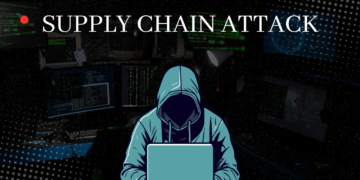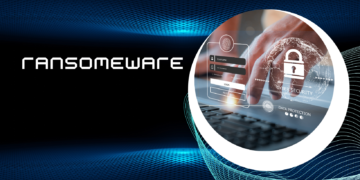In today’s digital world, network security isn’t just an IT department issue—it’s everyone’s responsibility. Whether you’re running a small business, managing your own personal devices, or looking to build a career in cybersecurity, understanding the fundamentals of network security is essential. Cyber threats are becoming more sophisticated, and without the basics of network security, you’re leaving yourself open to attacks that can lead to data breaches, financial losses, and damage to reputation.
In this guide, we’ll cover the essential concepts of network security, from understanding different types of threats to the tools and best practices you need to keep networks secure. Let’s dive into the basics every beginner should know.
What is Network Security? A Beginner’s Guide
Network security refers to the strategies and tools used to safeguard computer networks and sensitive data from unauthorised access, misuse, or attacks. Think of it as creating layers of defence to keep hackers and cybercriminals at bay while ensuring legitimate users can safely access your network. Key techniques include using encryption, firewalls, and robust password policies to protect personal and business data. Learn more about network security basics.
Understanding the Most Common Network Threats
Familiarising yourself with common threats is the first step in protecting your network. These include:
- Malware: Harmful software such as viruses, worms, and Trojans designed to steal data or damage systems.
- Phishing: Fraudulent emails or websites that trick users into sharing sensitive information like passwords.
- Ransomware: Encrypts files and demands payment for access.
- Denial-of-Service (DoS) Attacks: Overloads a network, blocking legitimate users.
Knowing these threats can help you implement targeted defences. For further reading on cyber threats, check out NCSC’s guide on cyber risks.
Essential Tools for Network Security
Equip yourself with these vital tools to safeguard your network:
- Firewalls: Block unauthorised traffic and act as a frontline defence.
- Antivirus Software: Scans for and removes malicious programs.
- Intrusion Detection Systems (IDS): Identifies unusual network activity.
- Virtual Private Networks (VPNs): Encrypts connections, ensuring privacy.
- Data Encryption: Protects sensitive information by making it inaccessible without a decryption key.
Using the right combination of these tools significantly strengthens network security. Explore trusted security solutions.
Top Network Security Best Practices for Beginners
Adopting good security habits is just as important as using the right tools. Follow these foundational practices:
- Create Strong Passwords: Use unique, complex passwords and avoid reusing them across platforms.
- Enable Two-Factor Authentication (2FA): Adds a second layer of verification.
- Keep Software Updated: Regular updates protect against vulnerabilities.
- Limit Access: Restrict network access to essential users only.
- Cybersecurity Training: Educate users on recognising phishing attempts and other scams.
These practices can reduce vulnerabilities and enhance your network’s resilience against attacks.
Why Network Monitoring and Auditing Matter
Proactively monitoring your network helps detect and prevent threats before they escalate. Here’s how:
- Traffic Monitoring: Use tools to analyse and flag suspicious activity.
- Regular Security Audits: Identify and fix weaknesses in your system.
- Incident Response Plans: Prepare a clear, actionable strategy for handling breaches.
Regularly reviewing and improving your security measures ensures you stay one step ahead of potential attackers. Read more about network audits.
How to Secure Remote Work Environments
With remote work becoming more common, here are some tips to protect home and hybrid setups:
- Use a VPN: Encrypts your connection, especially on public Wi-Fi.
- Secure Your Wi-Fi Network: Change default router settings and use a strong password.
- Rely on Trusted Devices: Use secure, company-approved hardware where possible.
By securing remote work environments, you minimise risks to both personal and organisational networks. Discover remote work security tips.
Final Thoughts on Network Security for Beginners
Network security is a shared responsibility in today’s interconnected world. By understanding threats, using essential tools, and adopting best practices, you can significantly reduce the risk of cyberattacks. Whether you’re safeguarding a home network or aspiring to work in cybersecurity, staying informed and proactive is key to navigating the digital landscape securely.
























